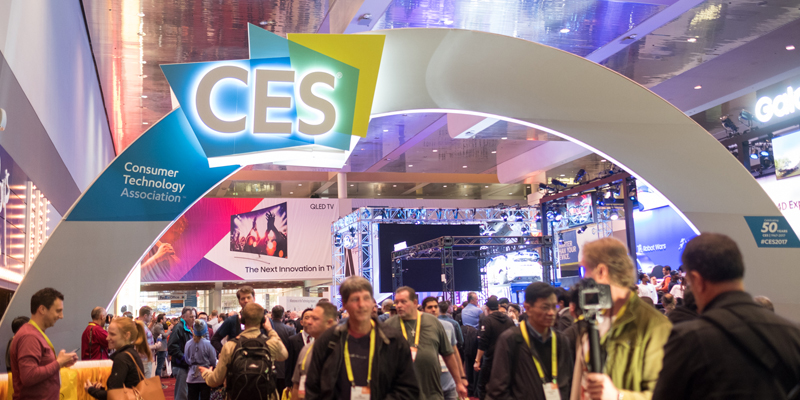TAKING HEALTHCARE HOME – THANKS TO TECHNOLOGY
There is so much good technology on show at CES this week it’s hard to pick a standout sector, but for me the digital revolution in healthcare is both rewarding and captivating. It offers so much potential to improve the outcome for patients, the experience of long term sufferers, and the efficacy of the practitioners.
The healthcare industry is under huge stress just about everywhere. We’re living longer, coupled with the fact that long term illnesses are impacting huge numbers of people (like diabetes) and are increasing that burden on already stretched systems. Technology is opening avenues in healthcare, with new opportunities to take healthcare home. In other words, shifting some of the day-to-day management of illnesses from the practitioner to the patient, driving cost saving and freeing up expert time for other activities.
Moving healthcare into the home has challenges of its own. If you are going to put medical devices into the hands of patients or caregivers, rather than that of professionals, systems and devices need to be simple and intuitive to use. We need to create experiences for lay people rather than professionals. When you change the user, you must change the user experience, not just of the product, but of the whole ecosystem. Experience lies at the core of everything we do at Radius Innovation & Development. Creating the experience is critically important to what we do as designers, but it’s not the only factor of course.
We’re really making the difference between whether a technology is adopted or not, and in healthcare that means a difference to someone’s health outcome. However, if we can’t deliver a cost-effective solution we’ve done no-one much good. So, we also help clients with the whole digital transformation process, the road to approvals, and of course the manufacturing and supply chain elements to which Jabil brings more than five decades of experience.
We can ideate, design, develop, manufacture, and deliver. And because we do all of that we have the engineering expertise and supply chain data at hand to know that we can make a product that is robust, fit for purpose, can be manufactured at an appropriate price point, and can be delivered anywhere in the world.
As well as moving healthcare into the home, there is a trend towards preventative care over the treatment of symptoms. This is good news but has been poorly supported in the past. Healthcare systems can use technology to embrace preventative care, with all of the benefits in outcome and cost reduction that it can bring. Medical and wellness technology needs to go further than telling me what’s wrong, it needs to coach me to make changes to improve my own outcome. That could be telling what to eat and what not to eat, reminding me to take medication, or to exercise.
It’s early days for digital health, everyone recognizes it’s transforming, but not everyone knows how to go about it. They know what behavior they want to create but they don’t know how to do it. How will gamification or applications and the entire ecosystem work together to help drive that change? That’s a big part of what we are leading customers through right now at Radius.
Our Human Factors team has worked on many healthcare products that are both traditional and digital. The process of researching how a product is used, stored, and even delivered needs to be carefully considered to get to the right solution. Human Factors, can, of course, also support FDA approval. User testing is an important step in the process.
The digital transformation process is one that challenges every industry. What’s more, it’s unique for each company. It will mean something quite different for a car maker and a healthcare provider. We’ve shared the journey with clients in many sectors and often it needs some real blue sky thinking to create new products, solutions, ecosystems and of course business models that deliver revenue growth as well as great customer or patient outcomes.
My full interview at CES 2018 here:
RELATED CONTENT
RELATED EXPERTISE
RELATED INSIGHTS
RELATED PROJECT WORK
RELATED CAPABILITIES
WANT TO LEARN MORE?
Start a conversation with Radius to learn how we can help you take your Healthcare project to the next level.

